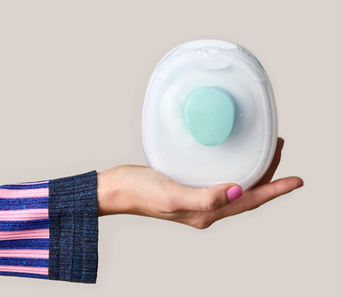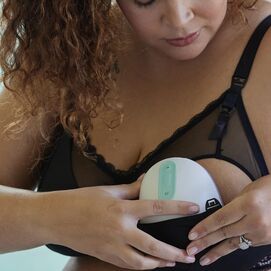Your days aren’t quite the same, now that you’ve got a newborn. Suddenly, your job description has become longer, your workload is exponentially heavier…and sleep? Well, you’re definitely not getting enough. There’s an incredible amount for you (and potentially your partner) to manage during the daytime, and you’ll need strategies to work through it. It’s a new world.
Dealing with daytime exhaustion (and chores) means employing some preventive tactics based on maximizing rest, refueling your energy, and coping with sleep deprivation. It’s a key parenthood challenge, and it’s not permanent.
Managing Parenting and Housework with a Baby
It may already be clear to you that moms typically do the lion’s share of the baby-related labor. If you have a partner or other help, family or employed, it’s smart to think about how to distribute the workload. Ideally, you and your partner figure out an equitable split. The sooner you start these conversations, the better—but it’s never too late to start!
Optimizing Newborn Naps
Your baby is going to sleep a whole lot during the day—more than perhaps you might have realized. (So. Many. Naps.) Although you’ll often be home for naps, your baby may also fall asleep in the car, in the stroller, or in the baby carrier while you’re out and about. This scenario becomes more likely as you have more children; the baby often needs to go where you all go! Here you’ll find tips to optimize your newborn’s sleep—and help you and your family get through this challenging period more smoothly.
Try Out Babywearing
Let’s say you need to be hands-free to run an errand or get something done in the house, yet your baby could use a cuddle and a nap. This is a good time to strap on the baby carrier or sling. Or better yet: Strap it on to your partner or caregiver. Babywearing is a lovely way to share the load—your infant—with others while addressing your needs.
As Dr. Laurie Jones, a pediatrician and founder of Dr. MILK (Mothers Interested in Lactation Knowledge), says, babies typically give nonverbal cues, such as hand-to-mouth movements to indicate hunger, before beginning to cry. And when your baby is nuzzled against your chest in a carrier, you can feel—and even address—these cues more quickly than when your baby is sitting in a car seat, stroller, or swing.
Calling in Community Support
The day-to-day workload, from meal prep to laundry to diaper changes to dishes, is a lot to juggle. There are many ways to rally some extra support from your partner, friends, family, and community to keep things moving along during the day.
Research indicates that support (both emotional and practical) is crucial to postpartum physical and mental recovery. This includes support in getting an adequate amount of sleep1. And the more specific your requests for support, the better, Dr. Jones says.
Perinatal psychiatric nurse practitioner Chris Raines advises soliciting a steady stream of help.
"Who is your one person outside of you and your partner that you feel comfortable asking them to do stuff?” Raines asks. Ask this person, she says, to help coordinate a plan (perhaps using a site like Give inKind), to have friends and family drop off prepared meals, walk your dog, run errands, play with your older child, or even just pop in for a glass of wine during your early postpartum months.
Perhaps, Raines says, you’ll end up with a simple plan “where somebody's coming every other day for an hour or even two hours in the afternoon, just to sit and talk.” This alone could prove helpful.
Conversely, you may be wondering about how to respond to an abundance of requests to visit from well-meaning friends and family. Letting others meet and hold your baby is fine, if you have the energy for it, but you may need to create some rules and boundaries around access to your baby, especially regarding sleep—both yours and theirs. Friends and family who are willing to take on other tasks so either you or your baby can rest are golden during this time.
Related Reading: Getting Postpartum Help
Get nourished with Chiyo
Get nourished with Chiyo
Chiyo’s meal programs are specifically designed to meet moms where they are — whether that’s trying to conceive or postpartum. Use the code WILLOW30 to get $30 off your first order.
Get help with family social engagement
Enlist your partner or older child to be the house concierge. Writing thank-you notes for gifts that are given. Making the baby announcement. Taking the photos for the baby announcement, posting stuff on social media. Returning phone calls and emails, fielding requests to visit, keeping a schedule of visitors. House concierge! Staying connected socially is a burden and a gift of modern parenting. Enlist help to make you feel competent as a parent.
Plan for the Night to Get Better Sleep as a New Parent
It might feel strange to think about sleep during the day (other than wistfully), but your daytime activities—including getting some restorative rest—can set you up for better sleep at night.
Better sleep at night starts with daytime activities, breaks, protein-based snacks, and hydration. You can use the pneumonic device GPS (Get outside, eat Protein, get Sleep) as your compass.
Related Reading: Welcome to Sleep in the Fourth Trimester
Coping with Sleep Deprivation After Baby
You might have had stellar sleep hygiene before kids. Well, sleep is among many important—and often routine—things up for renegotiation after the baby arrives. You’ll likely be battling a combination of exhaustion and adrenaline—and feeling overwhelmed to the core. Getting through this period requires a new daytime mind-set. You’ll need to lower your expectations in lieu of a gentler, less exacting approach to your daily living. Doula and midwife assistant Emily Varnam shares her insights and expertise about how to manage sleep deprivation.
Learn More Tips for New Parents with Willow
At Willow, we understand how hard it can be to transition into life after having a baby. That's why we created the Willow blog, which provides expert advice on lifestyle adjustments, postpartum self-care, parenting and more!














